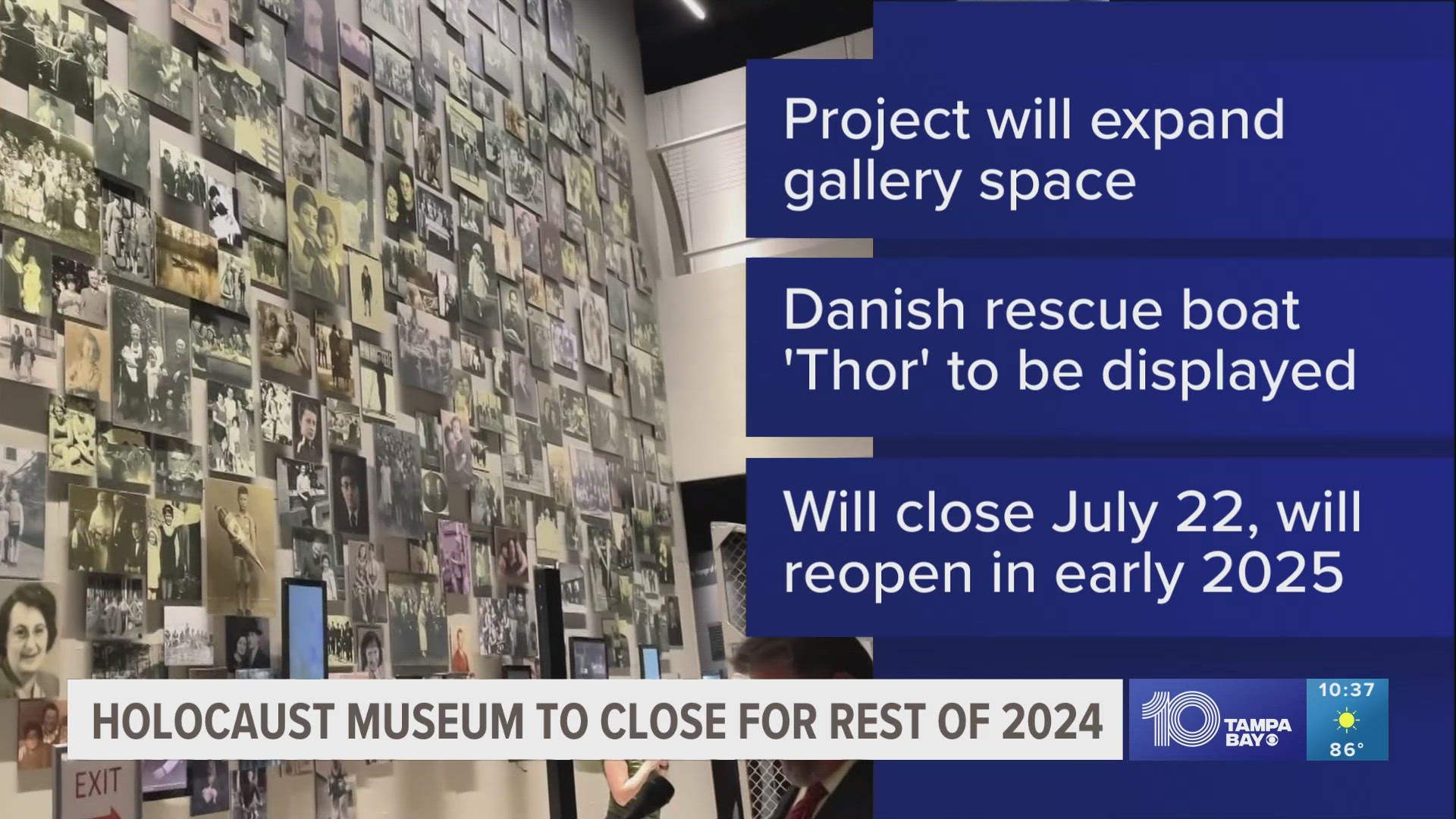ST. PETERSBURG, Fla. — The Florida Holocaust Museum will shutter its doors this month and remain closed for the rest of 2024, museum leaders said.
However, the closure is all part of the museum's "transformative" renovation and expansion. Visitors will be able to see the additions in early 2025, a news release said.
The Florida Holocaust Museum will close starting on July 22 as part of its first phase of renovations.
This first phase will include expanded gallery space for the Danish rescue boat, Thor, set to arrive at the museum in the fall. The expanded space will also allow more of the museum's reported 22,000 artifacts to be on display for museum-goers.
Thor was one of several fishing boats that took the entire Jewish population of Nazi-occupied Denmark to Sweden, which was neutral during World War II. More than 7,000 lives were saved because of this operation, a news release said. The museum has had the boat since late 2022.
The focus of the renovations centers around making the museum and exhibits a "visitor-centered experience," museum staff said. Once the first phase of expansion is complete, the Florida Holocaust Museum will have a new entrance equipped with "enhanced" security features, an open-air balcony on the second floor and a temporary installation of the Elie Wiesel collection.
In a future phase of the museum's renovations, a full exhibit dedicated to Wiesel will be installed, the museum said.
“The Museum may be closing temporarily, but that won’t stop us from continuing to deliver our mission to the world,” Interim CEO and Chair Emeritus Michael Igel said in a statement. “As disturbing antisemitism continues to plague our communities, on behalf of all Holocaust victims and Survivors, we can’t afford to pause our work in confronting this plague with passion and education. We will be out in the community more than ever, helping people of all ages benefit from the lessons of the Holocaust. Thank you to all the members, donors, and elected officials who make all of this possible.”
The museum said its staff and the institution will continue to be a "resource for the community" during the temporary closure. Its virtual library and resources for educators remain available online and the museum's "teaching trunks" will still be given out to schools across the country.
Docents will also be able to give virtual tours and the museum's speakers bureau will also remain open during the closure.

